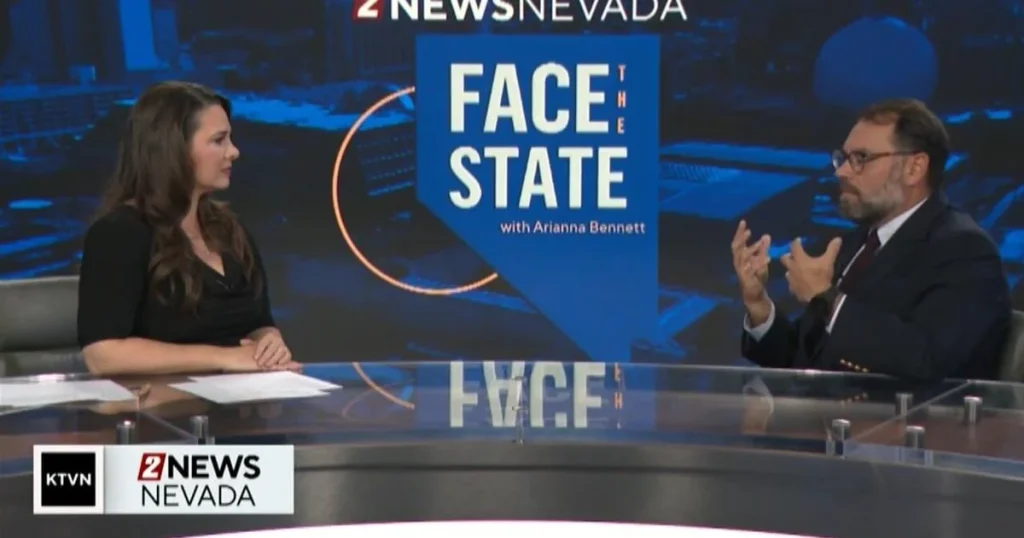Listen to the article
In an era where information flows freely across digital platforms, the threat of misinformation and disinformation has emerged as a significant challenge to public discourse and democratic processes. Experts are increasingly concerned about the proliferation of false narratives and their potential to influence public opinion, particularly during election cycles.
“The sheer volume of misleading content circulating online has reached unprecedented levels,” explains Dr. Sarah Hendricks, a media studies professor at Western Nevada University. “What makes today’s landscape particularly challenging is the sophistication of these campaigns and how quickly they spread across platforms.”
Recent research from the Digital Media Integrity Institute indicates that misinformation spreads approximately six times faster on social media than factual information. This rapid dissemination creates an environment where falsehoods can take root before verification processes occur.
Nevada, like many states preparing for upcoming elections, has become a focal point for targeted misinformation campaigns. Election officials have reported an increase in false claims about voting procedures, ballot security, and candidate positions—all designed to undermine voter confidence in the electoral system.
“We’re seeing coordinated efforts to confuse voters about polling locations, identification requirements, and even voting eligibility,” notes Robert Simmons, Nevada’s Deputy Secretary for Election Security. “These campaigns often use sophisticated tactics that make the information appear legitimate to the untrained eye.”
Experts distinguish between misinformation—false information shared without malicious intent—and disinformation, which involves the deliberate creation and distribution of false information to deceive. Both present unique challenges for media organizations, government agencies, and an increasingly skeptical public.
The economic impacts of misinformation extend beyond politics. Financial markets have experienced volatility following the spread of false corporate information, while health misinformation during the pandemic led to measurable public health consequences. The World Economic Forum now lists misinformation as one of the top global risks, estimating its economic cost at approximately $78 billion annually.
Media literacy experts emphasize the importance of critical thinking skills when consuming information. “We encourage people to verify information through multiple reliable sources before sharing it,” advises Tina Williams, director of Media Literacy Now, a nonprofit organization that provides educational resources. “Checking publication dates, investigating source credibility, and being wary of emotional manipulation are essential practices.”
Social media platforms have implemented various measures to combat false information, though critics argue these efforts remain insufficient. Meta, Twitter, and YouTube have expanded fact-checking partnerships and adjusted algorithms to reduce the visibility of content flagged as potentially misleading.
“Platform policies represent important progress, but they’re just one piece of a complex puzzle,” explains tech policy analyst Marcus Johnson. “The challenge lies in balancing content moderation with free speech principles, all while keeping pace with evolving tactics.”
Government agencies have also increased efforts to counter foreign influence operations that spread disinformation. The Department of Homeland Security identified several campaigns originating from foreign actors attempting to amplify divisive content ahead of local elections in Nevada and other swing states.
Education remains a crucial front in addressing the challenge. Several Nevada school districts have incorporated digital literacy programs into their curricula, teaching students to evaluate online information critically.
“Building resilience against misinformation begins in the classroom,” says Clark County School District Superintendent Teresa Gonzalez. “We’re equipping students with the tools to distinguish credible sources from questionable ones—skills that serve them throughout their lives.”
As election season approaches, officials encourage voters to rely on official government websites, established news organizations with rigorous fact-checking processes, and nonpartisan voter education resources.
Experts warn that misinformation threats will likely intensify, requiring ongoing vigilance from institutions and individuals alike. The challenge of maintaining an informed citizenry in the digital age continues to evolve, demanding innovative solutions and collaborative approaches across sectors.
Fact Checker
Verify the accuracy of this article using The Disinformation Commission analysis and real-time sources.




11 Comments
Misinformation about voting procedures and ballot security can undermine public trust in the electoral process. I’m glad to see Nevada taking steps to address these false claims and ensure transparency around election integrity.
Addressing misinformation is crucial for maintaining a healthy, functioning democracy. I applaud Nevada’s proactive approach and hope their work can provide valuable insights for other states grappling with similar challenges.
The proliferation of false narratives online is a complex issue without easy solutions. I’m interested to learn more about the specific strategies Nevada is employing to combat misinformation and protect the integrity of their elections.
Kudos to the Digital Media Integrity Institute for their research quantifying the rapid spread of misinformation. This data underscores the urgency of the problem and the need for robust countermeasures.
The targeting of specific states like Nevada with misinformation campaigns is deeply concerning. Voters deserve access to accurate, reliable information to make informed decisions. This is a complex issue that requires a multi-faceted approach.
The rapid spread of misleading content online is a major challenge. It’s encouraging to see research quantifying just how much faster misinformation travels compared to facts. Proactive efforts to counter these campaigns are essential.
Absolutely. Verification and fact-checking are key to combating the proliferation of falsehoods. Kudos to Nevada for taking a stand against these deceptive practices.
Tackling misinformation and disinformation is critical for preserving the integrity of our democratic processes. I’m glad to see Nevada taking this issue seriously and working to address the spread of false narratives.
Misinformation and disinformation pose a serious threat to public discourse and decision-making. Nevada’s efforts to tackle these challenges are commendable and serve as an important example for other states to follow.
The increasing sophistication of misinformation campaigns is troubling. I hope Nevada’s efforts to tackle this challenge can serve as a model for other states grappling with similar issues. Proactive, collaborative solutions are crucial.
Agreed. Combating misinformation requires a multifaceted approach involving election officials, media, and the public. Transparency and fact-based information are essential to upholding democratic principles.